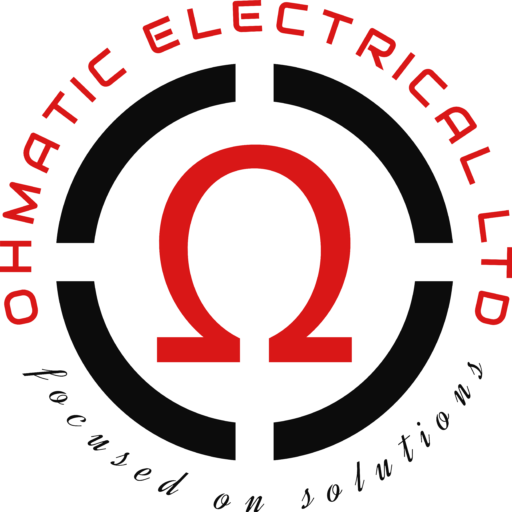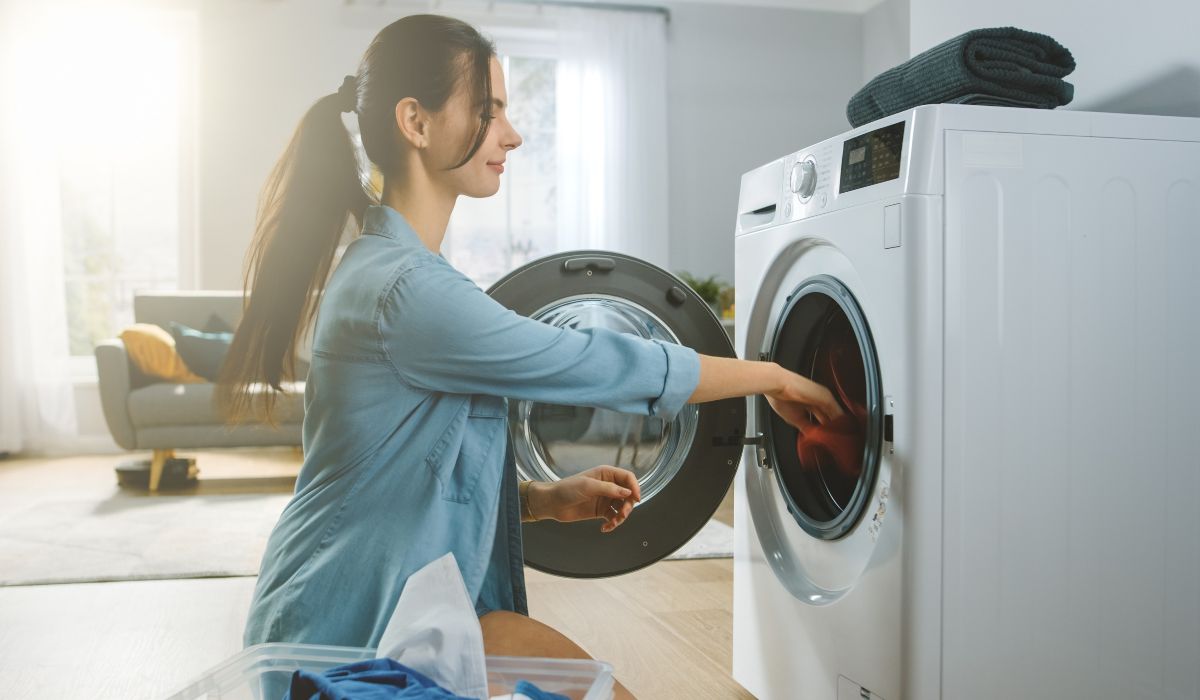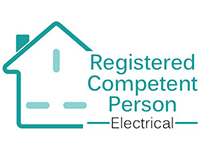A washing machine typically uses between
0.3 and 2.0 kilowatt-hours (kWh) of electricity per cycle, depending on the model, temperature setting, and load size. Energy-efficient machines often use 0.6 to 1.0 kWh per wash. Lower temperatures and full loads can reduce electricity use.
Understanding how much electricity your appliances use is a smart first step in reducing household energy consumption. The humble washing machine plays a crucial role in daily life but is often overlooked when it comes to energy tracking. So, how much electricity does a washing machine actually use? The answer depends on several factors, including the machine’s energy rating, age, size, and usage habits.
Let’s discuss it in detail and offer practical insights into managing electricity consumption in your laundry routine.
Understanding Electricity Usage in Washing Machines
Electricity consumption in any appliance is measured in kilowatt-hours (kWh). This measurement tells you how much energy the machine uses per operation hour. Depending on their size and efficiency, washing machines typically range between 0.3 kWh and 2 kWh per cycle.
For a clearer idea:
- A standard 7kg washing machine with an A-rated efficiency might use around 0.6 to 1.0 kWh per cycle.
- Larger machines, especially with heated water washes or intensive cycles, may use closer to 1.5 or even 2.0 kWh per Wash.
In perspective, if your machine uses 1 kWh per cycle and you do five loads a week, that’s 5 kWh weekly or around 260 kWh annually.
Watts, Kilowatts and Amps: Know the Terms
Before diving deeper, it’s helpful to get to grips with some basic electrical terms:
- Watt (W): This is the base unit of power. A 2000-watt washing machine uses 2 kilowatts.
- Kilowatt (kW): 1000 watts make one kilowatt. Appliances are generally rated in kW for more straightforward calculations.
- Kilowatt-hour (kWh): This is the measure of energy consumed. It’s what you see on your electricity bill.
- Amps: Short for amperes, this measures the current drawn by the appliance. Most UK washing machines operate between 5 and 10 amps.
Knowing the amps and watt rating helps ensure your circuits are safely configured to handle the load.
How Do Different Wash Cycles Affect Electricity Use?
Not all wash cycles are created equal. A quick rinse consumes less electricity than a complete cotton cycle with a 60°C wash.
Here’s how typical settings compare:
- Cold Wash (30°C): Uses the least electricity as it doesn’t heat the water. Around 0.3–0.5 kWh per cycle.
- Warm Wash (40°C–60°C): Heating water increases power usage. You may see consumption rise to 0.7–1.5 kWh.
- Hot Wash (90°C): Not common in everyday use, but this can consume up to 2 kWh.
- Eco Wash: Designed to use less water and electricity but takes longer. You might only use 0.5–0.7 kWh per cycle.
Hotter washes require more energy, largely because they heat water, one of the most power-hungry actions in domestic appliances.
Front Loader vs Top Loader: Who Wins?
Front-loading washing machines are more energy efficient. Due to their drum design and gravity-assisted tumbling motion, they use less water and electricity. Most UK homes favour front loaders, which generally consume less power—often around 0.5 to 1.0 kWh per cycle.
Though more popular in North America, top loaders often use more electricity (up to 1.5 kWh per cycle) and can draw higher amps due to their design.
The Role of Energy Ratings
The energy label on your washing machine gives a snapshot of its power efficiency. Modern machines are labelled from A to G, with A being the most efficient.
- A-rated machines can use as little as 0.5 kWh per cycle.
- D or E-rated machines might consume up to 1.5 or even 2.0 kWh.
Over time, choosing an A-rated appliance will significantly reduce your electricity bill.
If you’re unsure whether your existing machine is efficient, check its data plate or user manual for detailed energy usage information. This data can help you make informed decisions when comparing appliances.
Annual Cost of Running a Washing Machine
The cost of running a washing machine varies depending on how often you use it, your electricity tariff, and the model.
Let’s say:
- You use a machine that consumes 1 kWh per cycle.
- You wash 5 times a week (260 washes per year).
- Your tariff is £0.30 per kWh (a common UK average in 2025).
Annual cost = 260 kWh x £0.30 = £78.00
If your machine is more efficient and uses only 0.6 kWh per cycle, your yearly cost would be just £46.80 — a decent saving over time.
Additional Factors Influencing Electricity Usage
Beyond just the cycle and temperature, several other variables can impact electricity consumption:
- Load size: Overloading the drum strains the motor, increasing power draw.
- Spin speed: Higher RPMs can use more watts, though they reduce drying time — which may save energy overall.
- Water temperature input: If your machine uses cold-fill only, it will heat the water using electricity. Some older machines connect to hot-fill systems.
- Machine age: Older models often have less efficient motors and thermostats, increasing consumption.
Smart Tips to Reduce Electricity Usage
Here are some practical energy-saving tips:
- Wash at 30°C: Modern detergents clean effectively at low temperatures.
- Full loads only: Avoid half-loads unless your machine adjusts accordingly.
- Choose eco modes: They may take longer but save electricity and water.
- Spin efficiently: Use a higher spin cycle to reduce dryer time, if applicable.
- Schedule off-peak: If on an economy tariff, run machines during cheaper night-time hours.
Should You Consider a Smart Washing Machine?
Intelligent washing machines allow better control and energy tracking via smartphone apps. Some models offer real-time electricity consumption data and auto-suggest efficient settings. While more expensive upfront, they can deliver long-term savings.
You might also benefit from integrating the appliance into a smart home system. An electrician can install smart plugs or connect your appliance to an energy monitoring system, giving you greater visibility and control.
Many homeowners across the UK trust Ohmatic Electricals for professional guidance and electrical safety checks. They specialise in electrical installations, efficiency audits, and home rewiring projects, ensuring your appliances operate safely and economically.
Appliance Safety and Electrical Setup
From an electrical safety perspective, ensuring your washing machine is wired and fused correctly is crucial. Typically, washing machines require:
- A dedicated 13-amp socket.
- A circuit can handle around 2000 to 2500 watts (2.0 to 2.5 kW).
- Adequate RCD protection for shock prevention.
If you’re setting up a laundry room or moving into a new property, having your electrical system reviewed by a qualified electrician is a good idea.
Environmental Impact: Electricity Use and Carbon Emissions
Electricity usage has broader implications beyond just your bill. Each kilowatt-hour consumed contributes to your household’s carbon footprint. Although the UK is moving steadily towards renewable energy, reducing unnecessary electricity use helps the environment, too.
Opting for an energy-efficient washing machine and operating it mindfully means fewer emissions over time. Simple steps like washing full loads at 30°C and avoiding unnecessarily hot cycles can significantly reduce your environmental impact.
Final Thoughts
So, how much electricity does a washing machine use? It varies, but with average usage and moderate efficiency, expect anywhere between 0.5 and 1.5 kWh per Wash. That translates into about £50 to £100 a year, depending on habits and appliance type.
By making informed choices and adopting energy-efficient habits, you can enjoy clean clothes without dirtying the planet — or your energy bill.
Frequently Asked Questions
How many kilowatts does a washing machine use per hour?
A typical washing machine in the UK uses between 0.3 and 2.0 kilowatts (kW) per hour, depending on its age, drum size, and cycle settings. Newer, energy-efficient models consume around 0.6 to 1.0 kW per wash cycle, mainly when used with eco or cold wash settings.
How much does running a washing machine in the UK cost to run?
On average, if your washing machine uses 1 kilowatt-hour (kWh) per cycle and your electricity rate is £0.30 per kWh, each Wash would cost around 30p. With five washes per week, that equates to roughly £78 annually. Using cooler settings and running full loads can help lower this cost.
How many amps does a washing machine draw?
Most UK washing machines operate on a 13-amp plug and typically draw between 5 and 10 amps, depending on the cycle and machine size. Peak current may occur during the water heating and spin phases. Your electrical setup must match the amp load to avoid circuit overload.
Do cold washes use less electricity than hot washes?
Yes, cold washing uses significantly less electricity because the machine doesn't need to heat the water. A 30°C cycle might use around 0.3 to 0.5 kWh, whereas a 90°C hot wash can consume up to 2.0 kWh. Cold cycles are ideal for energy-saving and extending garment life.
How can I reduce my washing machine's electricity usage?
To reduce power consumption:
- Wash full loads whenever possible
- Use eco and cold wash settings
- Avoid excessively high spin speeds
- Maintain your machine with regular cleaning
- Schedule cycles during off-peak hours if your tariff allows





